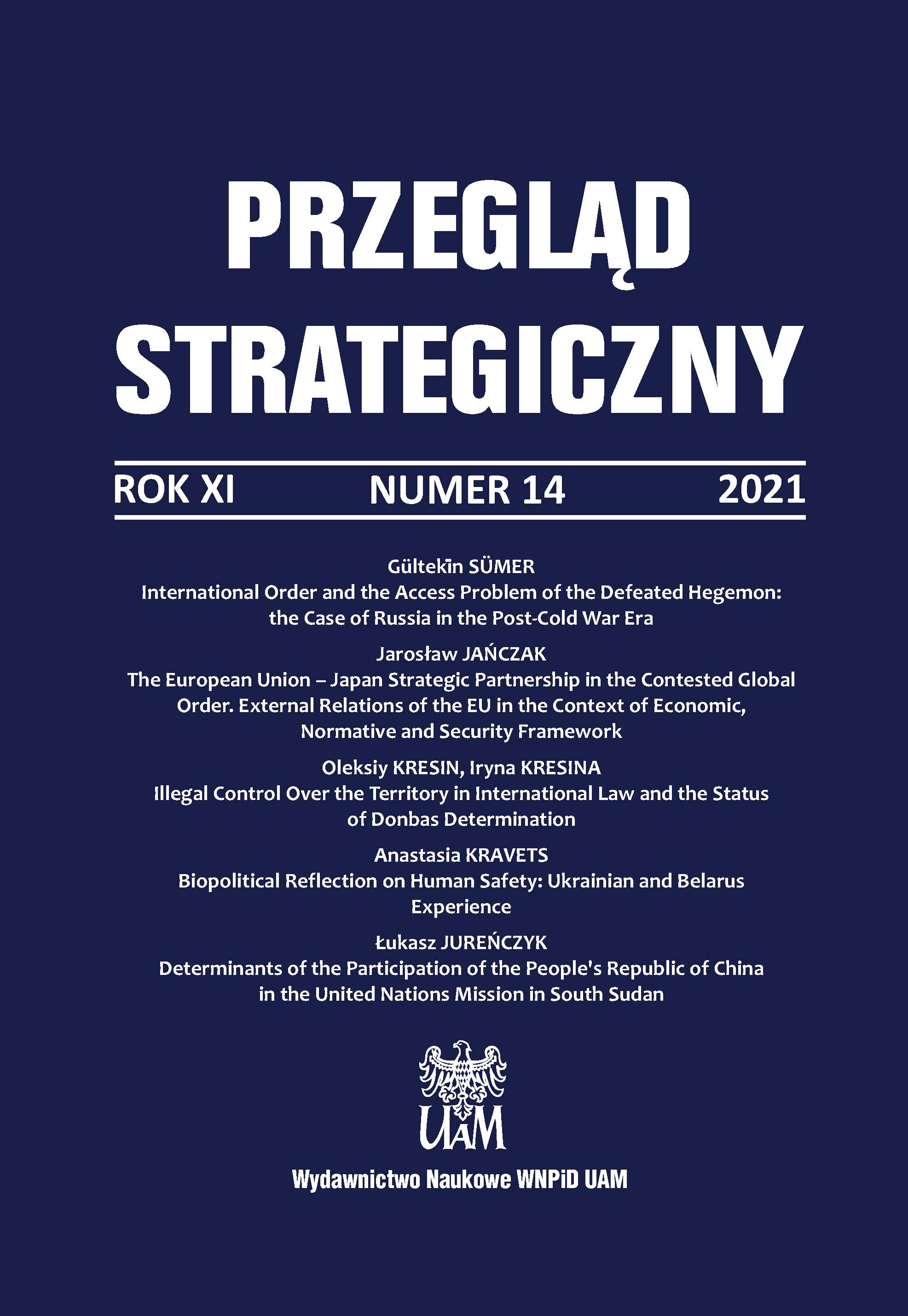International Order and the Access Problem of the Defeated Hegemon: the Case of Russia in the Post-Cold War Era
International Order and the Access Problem of the Defeated Hegemon: the Case of Russia in the Post-Cold War Era
Author(s): Gültekin SümerSubject(s): Politics / Political Sciences
Published by: Uniwersytet Adama Mickiewicza
Keywords: international order; Europe; Russia; foreign policy; the Cold War
Summary/Abstract: It has been evident that Russia as the heir of Soviet foreign policy, could neither achieve to integrate herself into the international order, nor could the international order achieve to find a solution to Russian foreign policy identity quest. As long as Russia cannot find a stable and permanent status for herself in the world politics, her foreign policy will signify a permanent instability on the behalf of the international order. The current hegemonic international order is far from residing technical capabilities in terms of satisfying Russia’s foreign policy expectations, because it is unprecedentedly rigid in terms of allowing or refusing the incorporation of hegemonic power like Russia. While it cannot return to multipolarity, it could not set a community based international order either. Since the current international order was founded upon liberal anti-Soviet values, it entered into a lightness of exposing Russia to make clear-cut choices in her foreign policy. As much as the current international order was founded upon liberal anti-Soviet values, its demands from the new members would much higher that especially Russia would not easily adapt herself to.
Journal: Przegląd Strategiczny
- Issue Year: XI/2021
- Issue No: 14
- Page Range: 25-38
- Page Count: 16
- Language: English

